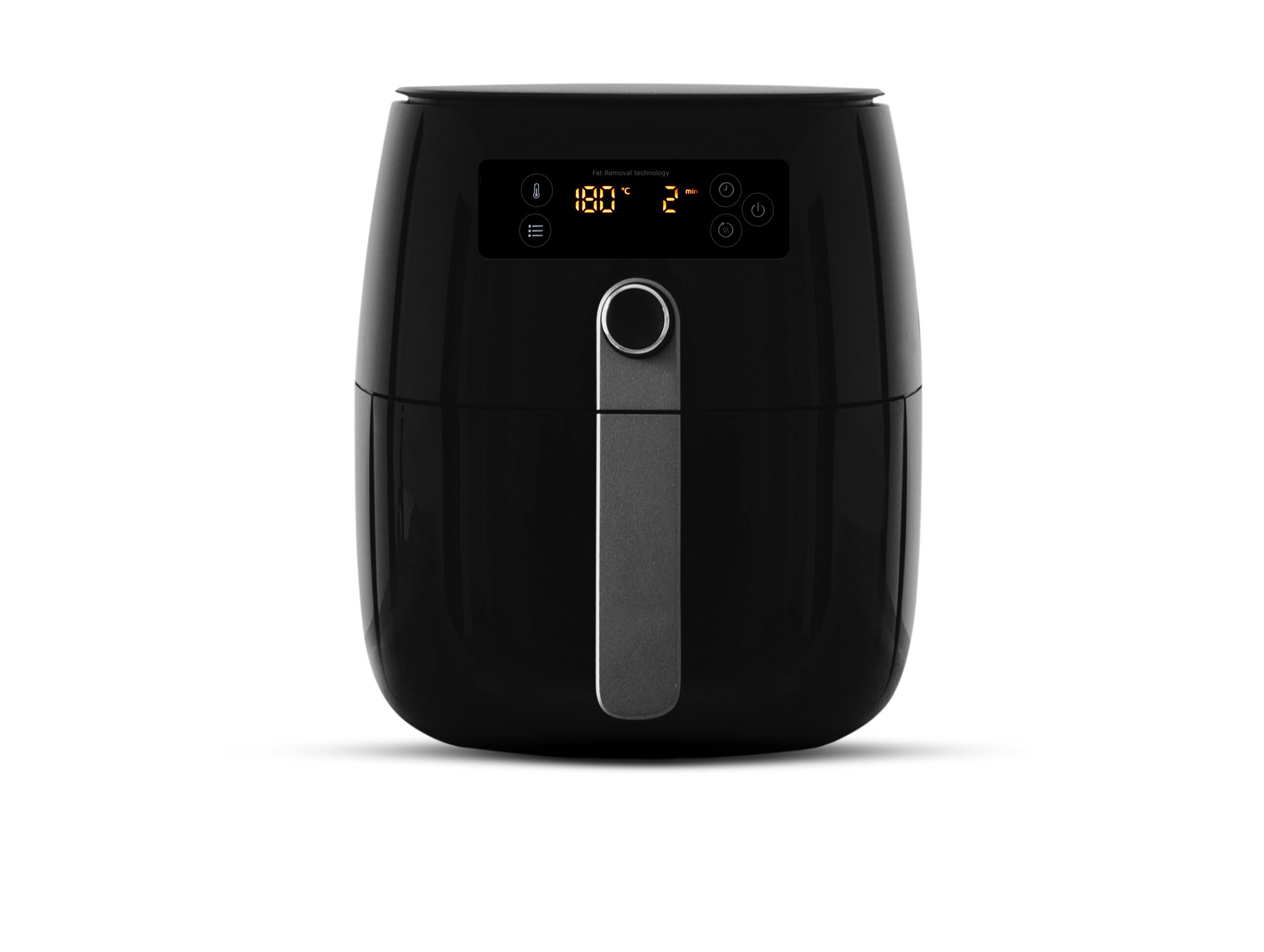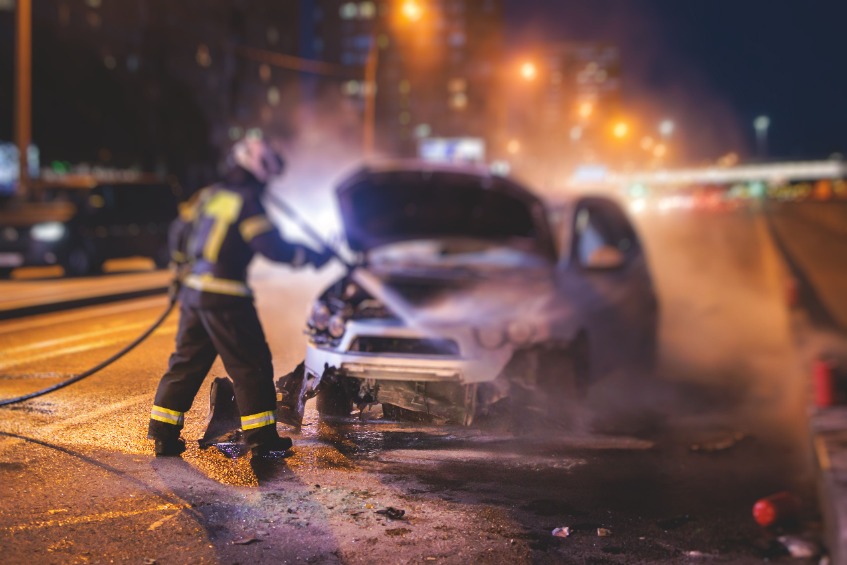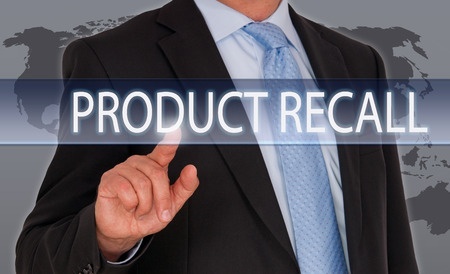

Product Recall: 2 million Air Fryers Recalled Due to Fire and Burn Hazard
First introduced in 2010, the air fryer has become one of the most popular kitchen gadgets on the market. They are time-saving “ovens” that use rapid hot air technology to cook food faster, with no preheating required. It’s also easier to “fry” foods with little or no oil, which is popular for people looking to decrease fats in their diet. At this point, there are several brands on the market, but Cosori is having a bad week after they had to recall 2 million air fryers due to reports of their appliances catching fire.
(more…)


Risk of Engine Fires Prompts Kia Recall
There are a variety of reasons that engines catch fire, including car accidents, problems with a vehicle’s electrical wiring or fuel system, and overheating due to poor maintenance. When problems with vehicle parts cause increased risk of accidents or injuries, it’s important to know whether a manufacturing error was at play. When it comes to manufacturing errors that cause defective or dangerous parts, manufacturers are obligated to recall all affected vehicles in a timely manner and cover the cost to repair or replace the defective part. If they fail to do so, they may be liable for any accidents and injuries that are caused as a result of their negligence.
(more…)



Defective Products Increase Risk of Car Accidents
Defective Products Increase Car Accident Risk
Dangerous and defective products cause thousands of injuries every year. When a vehicle is manufactured with defective parts or design, it may put drivers, passengers, and others on the road at risk because the vehicle behaves in a way that causes safety concerns. In some cases, the vehicle’s defect becomes obvious right away and in other cases, the problem(s) develop over time.
There are generally two ways that a vehicle component can be deemed defective:
- Design defects. Design defects make a vehicle unsafe to drive even when it is manufactured and driven the way it was meant to be. It means that the part’s design was defective and therefore unsafe no matter how smoothly it is installed into the vehicle.
- Manufacturing defects. Manufacturing defects are caused by mistakes made during the manufacturing process. Generally, in manufacturing defect cases, a properly designed part is installed incorrectly or becomes damaged during installation.


Vehicle Defects Cause Car Accidents
While cars are considerably safer than they were several decades ago, vehicle defects still cause serious car accidents that result in personal injuries. The National Motor Vehicle Crash Causation Survey reported by the National Highway Traffic Safety Administration (NHTSA) found that vehicle “factors” were the critical reason for 44,000 of the 2.2 million accidents they reviewed between 2005 and 2007.
Read More


Chinese Product Recalls Crisis 2007
We use a variety of products everyday but some products are toxic and need to be recalled. In 2007, China had a public relations and trade crisis on its hands when a series of product recalls on its exports were announced. The product safety institutions of the United States, Canada, the European Union, Australia, and New Zealand imposed bans on products manufactured in and exported from China because of lead in paint and other safety concerns. The products fell into a variety of categories including toys, toothpaste, pet food, cosmetics, and even seafood.
Product Recalls
Product safety recalls are serious business. If you have been hurt by a product that has been recalled for safety issues seek the help of an experienced products liability attorney. Product recalls from 2007 included:
Toothpaste
On August 13, 2007 hotel amenity provider Gilchrist & Soames recalled toothpaste manufactured in China because it was contaminated with poisonous diethylene glycol, a constituent of antifreeze. Some Chinese manufacturers had been using it as a less-expensive substitute for glycerol, which is a safe ingredient often used to thicken toothpaste.
Two brands of Chinese-made toothpaste, Spearmint and Trileaf Spearmint were pulled from the shelves in Europe after it was discovered that they also contained diethylene glycol.
Pet food
A well known pet food recall was issued in March 2007 after a Canadian pet food manufacturer notified the US Food and Drug Administration (FDA) that animals had died after eating its products. The FDA identified melamine in the pet food which is an industrial chemical found in plastics and resins. Of 230 samples tested for melamine, 130 came back positive in the food itself or in the wheat gravy that accompanied the food.
The FDA believes that although the food was imported from China, the melamine was added to the wheat gluten and rice protein concentrate by US manufacturers. Since this initial assessment, American journalists have reported that factory owners in China have admitted to adding melamine to pet foods. The purpose was to increase the nitrogen content of the food to make it appear that it contained more protein than it actually did. China banned the practice of adding melamine to food products on April 26, 2007, but does not take responsibility for any deaths to pets.
Toys
In June 2007, toy firm RC2 Corp was forced to recall several of its Thomas & Friends wooden train sets due to lead in the paint used by Chinese manufacturers. Later that year, RC2 recalled all of its The First Years 3-in-1 Flush and Sounds Potty Seats because a Chinese contractor had used orange paint that contained excessive levels of lead on the plaque inserted into the back of the seat.
The year 2007 was not a great year for the world’s biggest toy company Mattel as it recalled millions of products in a four week span. On August 1, Sesame Street and Dora the Explorer toys were recalled because of lead levels in the paint. On August 14, 7.1 million Polly Pocket toys; 600,000 Barbie and Tanner Playsets; 1 million Doggie Daycare, Shonen Jump’s One Piece; and thousands of Batman Manga toys were recalled due to exposed magnets that could fall off. They also recalled Sarge diecast toys from the Pixar movie Cars because of concerns over lead in the paint. On September 4, Mattel recalled 800,000 Barbie doll accessories and Fisher-Price toys after tests showed the paint used on them contained lead. Mattel ended up issuing an apology to China’s manufacturers acknowledging that the majority of the product recalls were due to their own design flaws rather than poor manufacturing processes.
In November 2007, the toy called Bindeez exported by an Australian distributor was voluntarily recalled due to the paint containing a toxic chemical that made children sick when it metabolized into the anesthetic GHB.
On November 9, 2007 Marvel Toys recalled 175,000 Curious George plush dolls manufactured in China as they contained an excessive amount of lead in their surface paint.
On November 8, 2007 Dolgencorp recalled about 51,000 Children’s Fashion Sunglasses imported from China due to dangerous levels of lead.
If you or a loved one were injured in an accident, you have enough to deal with. Let an experienced accident attorney fight for the full compensation that you deserve. It is not uncommon to receive a settlement from the insurance company that is five to ten times bigger with the help of a lawyer. Call the caring accident attorneys at Tario & Associates, P.S. today for a FREE consultation! You will pay nothing up front and no attorney fees at all unless we recover damages for you!
Read More